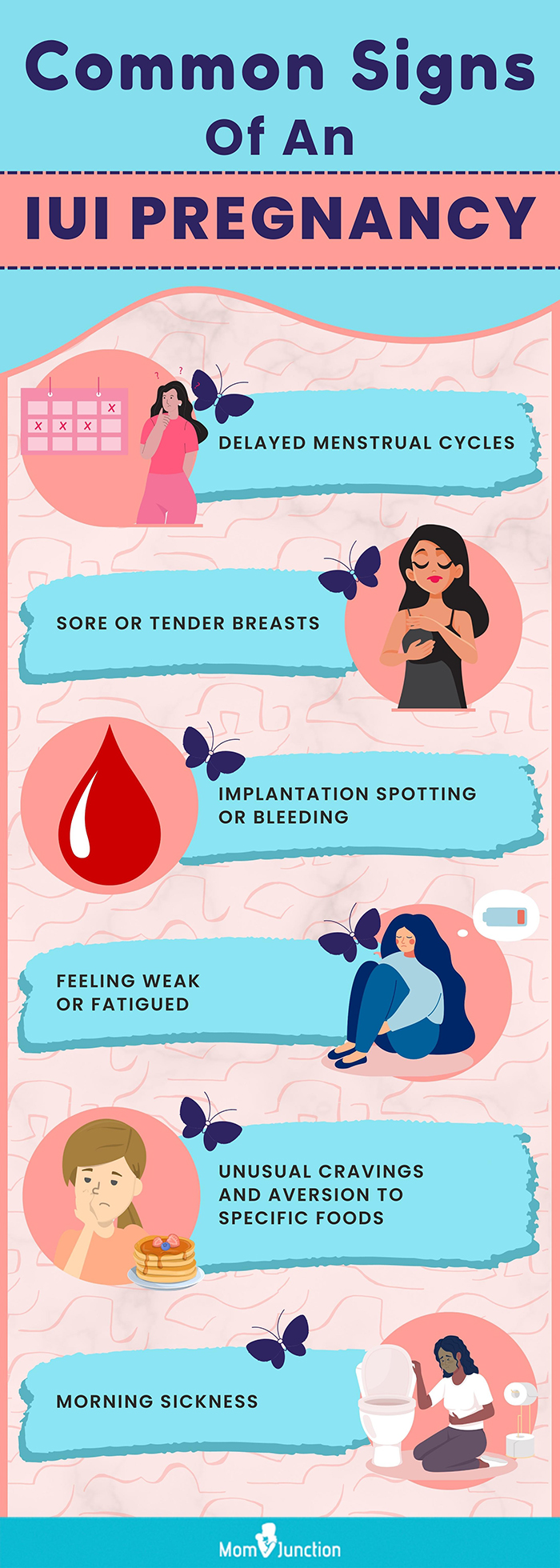
After Early IUI: Pregnancy Signs and What to Expect
Intrauterine insemination (IUI) is a fertility treatment that involves placing sperm directly into the uterus. It is often used for couples who have difficulty conceiving naturally. After IUI, it is important to be aware of the early signs of pregnancy.
What are the early signs of pregnancy after IUI?
The early signs of pregnancy after IUI can vary from woman to woman. Some women may experience symptoms as early as a few days after IUI, while others may not notice any symptoms until several weeks later.
Some of the most common early signs of pregnancy after IUI include:
- Breast tenderness
- Nausea
- Vomiting
- Fatigue
- Frequent urination
- Constipation
- Bloating
- Mood swings
- Implantation bleeding
Implantation bleeding is a light spotting that can occur when the fertilized egg implants in the lining of the uterus. It usually occurs around 6-12 days after IUI.
What should I do if I think I am pregnant after IUI?
If you think you may be pregnant after IUI, it is important to take a pregnancy test. Home pregnancy tests are available at most pharmacies. If the home pregnancy test is positive, you should make an appointment with your doctor to confirm the pregnancy and discuss next steps.
What happens after IUI if I am pregnant?
If you are pregnant after IUI, your doctor will likely recommend that you have regular prenatal checkups. These checkups will help to ensure that you and your baby are healthy.
Your doctor may also recommend that you take certain medications during pregnancy. These medications can help to prevent miscarriage and other complications.
What are the risks of IUI?
IUI is a relatively safe procedure. However, there are some risks associated with the procedure, including:
- Multiple pregnancy
- Ovarian hyperstimulation syndrome (OHSS)
- Infection
What is the success rate of IUI?
The success rate of IUI varies depending on a number of factors, including the age of the woman, the cause of infertility, and the number of IUI cycles performed. In general, the success rate of IUI is around 10-15% per cycle.
What are the alternatives to IUI?
If IUI is not successful, there are a number of other fertility treatments that may be an option for you. These treatments include:
- In vitro fertilization (IVF)
- Intracytoplasmic sperm injection (ICSI)
- Gamete intrafallopian transfer (GIFT)
- Zygote intrafallopian transfer (ZIFT)
What is the best way to prepare for IUI?
There are a number of things you can do to prepare for IUI, including:
- Eat a healthy diet
- Exercise regularly
- Get enough sleep
- Reduce stress
- Avoid smoking and alcohol
What is the best way to cope with the emotional challenges of IUI?
IUI can be an emotionally challenging experience. It is important to be patient and to have realistic expectations. It is also important to have a support system in place, such as family, friends, or a therapist.
IUI can be a successful fertility treatment for many couples. By being aware of the early signs of pregnancy after IUI and by following your doctor’s instructions, you can increase your chances of having a healthy pregnancy.